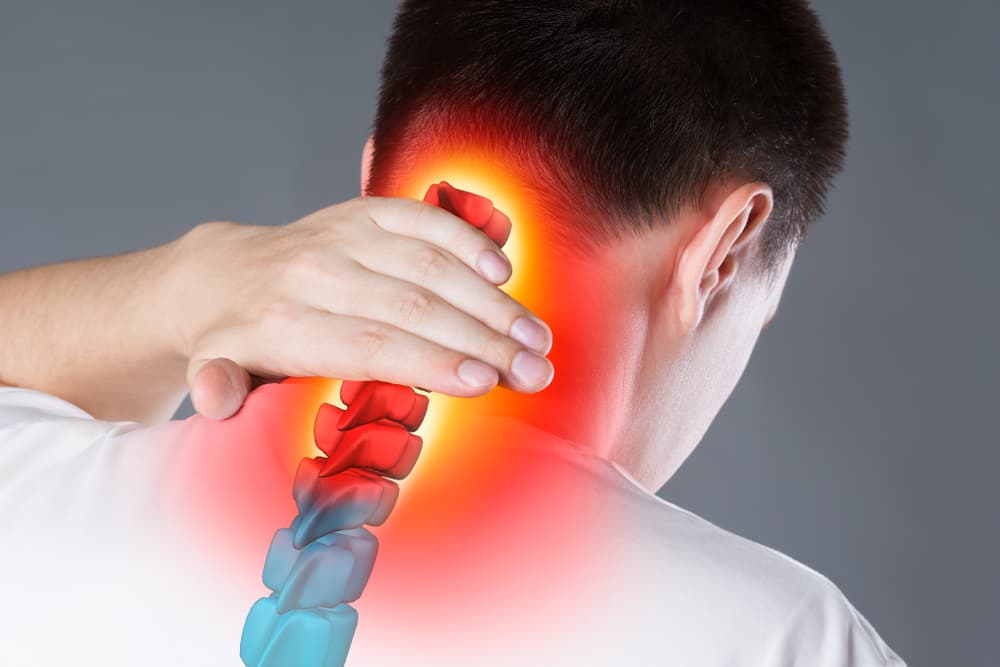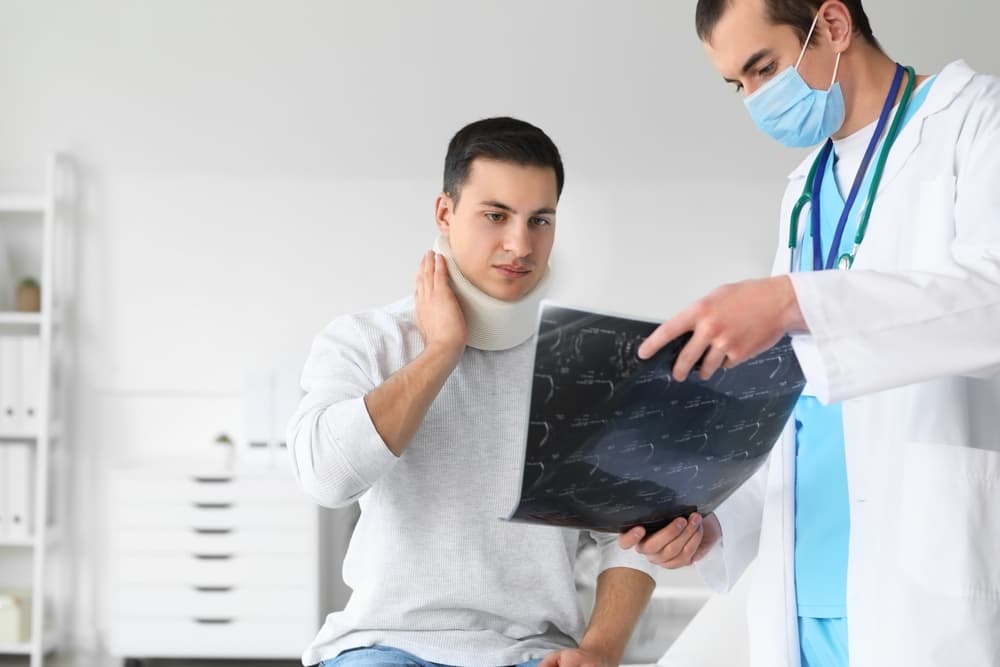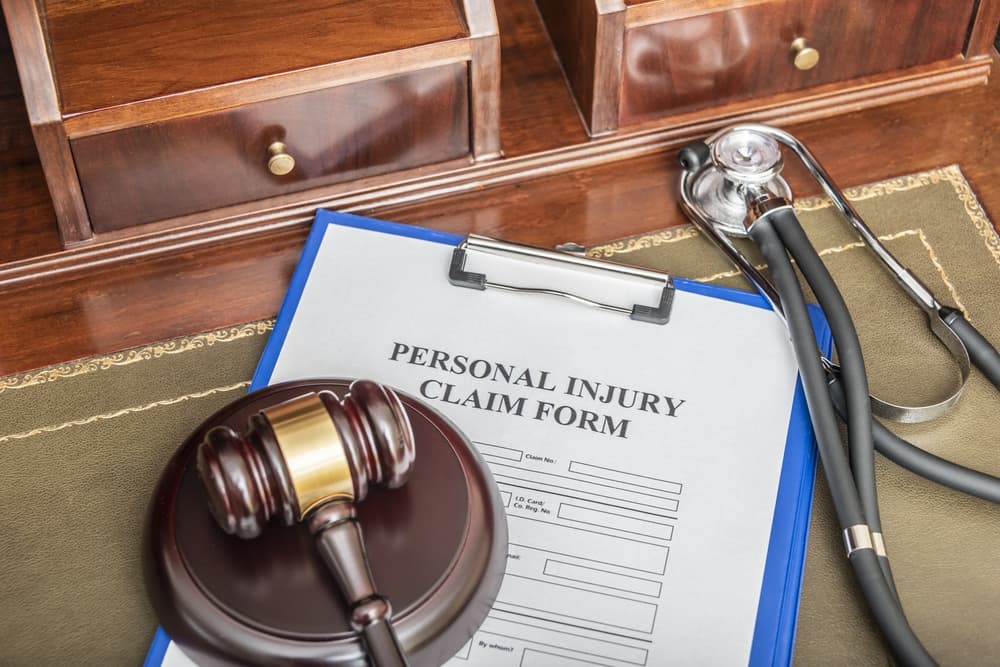Many people ask themselves, “Why am I having neck pain after my car accident or fall?” If you’re in this situation, you must get medical help immediately. You should never ignore any symptoms of an accidental neck injury. If you don’t see a doctor, you can suffer severe, long-term complications.
The following is a look at some of the reasons you’re having neck pain after your accident, potential complications, and how a Tampa neck injury attorney can help if the accident wasn’t your fault.
Common Neck Injuries

The cervical spine is particularly vulnerable to injury in car accidents due to the sudden and forceful movements involved. This is especially true in rear-end collisions, when someone hits your car from behind, and it throws your neck sharply forward.
Common neck injuries sustained in accidents include whiplash, cervical strain and sprain, herniated discs, and fractures or dislocations of the vertebrae.
Here’s some brief information on each.
- Whiplash occurs when the head is forcefully jerked forward and backward, causing strain to the neck muscles, ligaments, and soft tissues. This type of injury is prevalent in rear-end collisions and can result in symptoms such as neck pain, stiffness, headaches, and dizziness.
- Cervical strains and sprains refer to injuries to the muscles and ligaments in the neck, often caused by sudden movements or impact. These injuries can cause pain, swelling, and limited range of motion in the neck.
- Herniated discs occur when the soft, gel-like material inside a spinal disc protrudes through a tear or rupture in the disc's outer layer. If the disc suffers damage, it can apply pressure to the nerves nearby. This pressure can lead to hand or arm weakness, numbness, and severe pain that radiates down your limbs.
- Fractures or dislocations of the cervical vertebrae are less common but can have severe consequences, including spinal cord injury and paralysis. These injuries typically require immediate medical attention and may necessitate surgical intervention to stabilize the spine.
Recognizing the Symptoms of Neck Injury
Immediately after the incident, you may experience a range of symptoms indicative of a neck injury. These may include neck pain, stiffness, and tenderness, as well as difficulty moving your neck or rotating your head.
You may also notice swelling or bruising around the neck, headaches, or dizziness. These immediate symptoms are warning signs of potential underlying injuries to the cervical spine or surrounding soft tissues.
Delayed Symptoms
Look for delayed symptoms that may manifest days or weeks after the accident. Delayed onset of symptoms is typical in neck injuries and can indicate more severe underlying damage.
You may, for instance, notice persistent or worsening neck pain, radiating pain into the shoulders or arms, and numbness or tingling in the hands or fingers. You might also experience muscle weakness or difficulty gripping objects, significantly impacting your daily activities.
Potential Complications
Ignoring or downplaying neck pain can lead to long-term complications and chronic health issues. Untreated neck injuries may result in reduced mobility, chronic pain, and decreased quality of life.
In severe cases, untreated neck injuries can lead to nerve damage, spinal cord compression, or permanent disability. These complications can have profound physical, emotional, and financial consequences, affecting your ability to work, engage in recreational activities, and maintain personal relationships.
Please See a Doctor
Seeking prompt medical attention is crucial in diagnosing and treating neck injuries effectively. A healthcare professional can assess your condition, perform diagnostic tests such as X-rays or MRI scans, and recommend appropriate treatment options. Early intervention can help alleviate pain, prevent further damage, and facilitate a faster recovery.
As we discuss more below, delaying treatment too much following a crash can jeopardize your chance at filing a car accident claim for your neck injury.
Legal Considerations for Neck Injury Claims
In addition to seeking medical care, consult a personal injury attorney if you sustained a neck injury in an accident that wasn’t your fault. In a no-fault state, the first step after a car accident is to file a claim with your own personal injury protection (PIP) insurance. Even though you expect this claim to be straightforward, your PIP provider can make it difficult to get the benefits you need. Further, in the case of severe neck injuries, your attorney can also file a claim against the at-fault driver.
A lawyer can explain your legal rights, navigate PIP and at-fault insurance claims, and pursue compensation for your injuries and losses. They can also document your symptoms, medical treatment, and associated expenses, strengthening your case for compensation.
After an accident, protect your rights and maximize your chances of receiving fair compensation. From documenting and reporting your neck pain to understanding the role of medical records in legal proceedings, here's what you need to know:
Documenting and Reporting Neck Pain After an Accident
If you have neck pain after your accident, document and report it to medical professionals and relevant parties, such as law enforcement and insurance companies.
Thoroughly describe your symptoms and any limitations they impose on your daily activities. Keep detailed records of all medical treatments, including doctor's visits, diagnostic tests, medications, and therapy sessions. This documentation serves as valuable evidence in establishing the severity and impact of your neck injury on your life.
Seeking Prompt Medical Treatment and Follow-Up Care

Delaying or neglecting medical treatment for your neck injury can worsen your condition and weaken your legal case. For a PIP claim, you must seek medical treatment within 14 days of the accident, or you will not be eligible for compensation. You must also see the proper medical provider for your injury according to your insurer. Seek medical attention immediately after the accident from the right doctor, even if you don't immediately experience symptoms.
Follow your healthcare provider's recommendations for follow-up care, including additional diagnostic tests, therapy, and specialist referrals. Prompt medical treatment promotes your recovery and demonstrates to insurance companies and courts that you took your injuries seriously and sought appropriate care.
Understanding the Role of Medical Records and Diagnostic Tests in Legal Proceedings
Medical records, including doctor's notes, test results, and treatment plans, provide objective evidence of your neck injury and its impact on your life. Diagnostic tests such as X-rays, MRI scans, and CT scans can reveal the extent of your injuries and help establish causation.
Your personal injury attorney will use these medical records and diagnostic tests to demonstrate the severity of your neck injury, establish liability, and justify the compensation you seek.
Building a Strong Case for Compensation
Maximizing your compensation requires careful documentation of your medical bills, lost income, and pain and suffering. Your personal injury attorney will work with you to compile all relevant expenses related to your neck injury, including medical bills, prescription costs, therapy expenses, and transportation costs for medical appointments.
Your lawyer will also calculate the value of your lost income due to time off work for recovery and any future earning potential affected by your injury. Your claim may also include pain and suffering damages, including physical pain, emotional distress, and loss of enjoyment of life.
By meticulously documenting these damages, your attorney can present a compelling case for maximum compensation.
Challenges in Proving Neck Injury Claims

Proving neck injury claims can be challenging, particularly when facing disputes over causation, severity of injuries, and pre-existing conditions. Here are some of the hurdles you may encounter and how to navigate them effectively:
Pre-existing Conditions and Aggravation of Injuries
Insurance companies may argue that your neck pain or underlying conditions existed before the accident, so they don’t owe you any money. However, even if you had a pre-existing neck condition, if the accident worsened your symptoms, you may still recover compensation.
Providing medical records and expert testimony can establish the link between the accident and the aggravation of your pre-existing condition.
Infiltrating Your Social Media Feeds
Insurers aren’t above using questionable tactics to prove you don’t deserve money. For example, they’ll look at your social media posts to see if you’ve discussed the case. They’ll twist those discussions to show you accepted blame for the accident. Also, expect them to scour your posts for recent pictures of your activities after the accident, looking for any shred of evidence they can use against you.
Disputes Over Causation and Severity of Injuries
The insurer will also question whether the accident directly caused your neck injury or if your injuries are as severe as claimed. Insurance adjusters may downplay the extent of your injuries or attribute them to factors unrelated to the accident.
To overcome these disputes, it's crucial to document your symptoms thoroughly and seek medical evaluation from healthcare professionals specializing in neck injuries. Your medical records and diagnostic tests can provide compelling evidence of the causation and severity of your injuries.
Dealing with Insurance Companies and Defense Tactics
Insurers often employ various tactics to minimize their financial liability. Insurance adjusters, for instance, may attempt to pressure you into accepting a low settlement offer or use delay tactics to prolong the claims process. They may also conduct surveillance or scrutinize your social media activity to discredit your injury claims.
Always remain vigilant and hire a personal injury attorney who can fight for your rights and protect you from unfair treatment by insurance companies. A lawyer can gather evidence to support your claim and pursue legal action if necessary to secure the compensation you deserve.
Other Ways a Personal Injury Attorney Can Help

If you’re having neck pain after your accident, a personal injury attorney can be invaluable in navigating the complexities of your case and pursuing the compensation you deserve. Here are just a few of the other ways your lawyer can help.
Fighting for Your Rights and Best Interests
This will be your personal injury attorney’s primary role. They’ll serve as your legal advocate, representing your interests and fighting for the compensation you're entitled to. Your attorney will protect your rights throughout the claims process and ensure you receive fair treatment from insurance companies and other parties involved in your case.
Gathering Evidence and Establishing Liability
Your lawyer will also thoroughly investigate the accident, gathering evidence such as witness statements, accident reports, and medical records. They’ll work to establish liability by demonstrating that the at-fault party’s negligent actions directly caused your neck injury.
Negotiating With Insurance Companies for Fair Settlements
The at-fault party’s insurer will likely offer a low-ball settlement or claim you’re not as badly hurt as you claim.
Your lawyer will use the evidence they gather to show the insurer owes you exactly what you deserve. They’ll fight for fair compensation based on the extent of your injuries, medical expenses, lost income, and pain and suffering. Your lawyer will work tirelessly to ensure you receive the maximum settlement possible.
Litigating Cases in Court if Necessary
Going to court is the final recourse in any personal injury case. However, you shouldn’t unnecessarily stress over your case going to trial. Most cases settle out of court.
The insurer may refuse to offer a fair settlement. Your attorney may recommend taking your case to court if that happens. They’ll present your case before a judge and jury, arguing for the compensation you deserve. They’ll use their legal experience and advocacy skills to build a compelling case and pursue justice on your behalf.
Get in Touch With a Personal Injury Lawyer to Protect Your Rights

We can’t overstate the importance of seeking medical help immediately if you’re asking, “Why am I having neck pain after my accident?” As you’ve learned, the risks of complications due to not seeing a doctor can be catastrophic.
However, speaking with an experienced personal injury attorney is just as important. They’ll handle the legal process with confidence. You can focus on your recovery while knowing your case is in capable hands.
If you've suffered a neck injury in an accident that wasn’t your fault, please don't hesitate to seek the assistance of a personal injury attorney. A skilled lawyer will provide the guidance and support you need to have the best chance of getting the money you deserve.